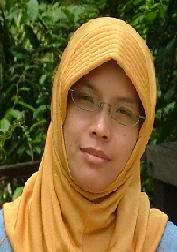Your Biggest Problem Tackled
Your Biggest Problem Tackled
There's usually no quick solution to problems that seem insurmountable, but that doesn't mean it's time to start breathing slowly into a brown lunch bag to avoid hyperventilation or a fainting episode. Greensboro, N.C.-based nonprofit leadership educational institute Center for Creative Leadership (CCL) has launched a program that provides a problem-solving methodology to avoid the madness.
The program, Navigating Complex Challenges, gives participants a problem-solving strategy they can use right as they're learning it, says Brenda McManigle, PhD and global manager of open enrollment programs. "One of the things that's really unique about it is it involves individual action learning," McManigle says. "A person will bring an actual complex challenge and work that."
The program begins with pre-work before participants ever arrive, and continues with online follow-up work after they leave the three-day face-to-face sessions. The experience is 12 weeks altogether.Launched the last week in March, with additional sessions scheduled for June and September of this year and January and March of 2007, examples of problems brought to the Center include how to integrate organizations following an acquisition and how to effectively bring a new product to market.
Eight weeks before the course begins, participants receive pre-work including a 360 by Design feedback assessment as well as an assessment that gauges the organization's readiness for innovation. They are also asked to start developing a "social network map" in which students are asked to think about all the stakeholders who will be affected by the outcome of the challenge.
In addition, participants are asked to interview the person in the organization who is championing the challenge, such as the manager who has assigned them the task that's worrying them so much, as well as a few stakeholders. Two weeks prior to the program, students have a 90-minute meeting with a CCL coach to clarify pre-work and start talking about the challenge that will be brought to the face-to-face sessions. From there the approximately 20 students come to the face-to-face in which they are set up in "learning teams" of four to work as peer coaches confronting one another's challenges.
The tuition, $4,800, includes meals, but students are expected to pay for travel and accommodation themselves. A week after the face-to-face sessions, the coach calls students for an assessment on how the challenge has been reframed and what steps will be taken to work through it.
Two weeks after, a 10-week online follow-up course begins in which students can bring the other members of their learning team, along with actual stakeholders of the challenge, into a virtual space for time with the coach. After those 10 weeks are over, the coach has a closing 30-minute call with participants after which they decide if they want to continue with counseling. The cost for additional time with the coach is $250 an hour.
"I think one of the things we really try to get people to focus on is the fact that they don't have all the answers, they're not going to have all the answers," says McManigle, "and so how do they develop their network and reach out to people to get the greatest degree of difference in perspective on what they're trying to accomplish." For more information, visit www.ccl.org.


0 Comments:
Post a Comment
<< Home